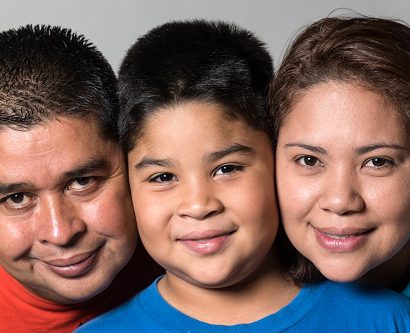Childhood Obesity Research Demonstration (CORD) 3.0

Childhood obesity remains a pressing public health concern, affecting nearly 1 in 5 US children. In addition, some groups experience higher rates, such as children from lower-income families.
Building on previous CORD projects, CORD 3.0 research teams focus on adapting, testing, and packaging effective programs to reduce obesity among children from lower-income families. In addition, CORD 3.0 projects work towards programs that are sustainable and cost-effective in multiple settings. Research teams will translate these programs into user-friendly, packaged materials and messages for healthcare, community, or public health organizations.
CORD 3.0 has the potential to reduce childhood obesity by increasing the availability of effective family healthy weight programs for millions of children from lower-income families.
CORD 3.0 funds five recipients for 5 years (2019-2024).
CDC launched CORD 1.0 in 2010 and funded four recipients to use a whole-community approach to address childhood obesity. Several sites saw reductions in children’s body mass index (BMI), a body measurement that can be used to screen for weight categories.
Findings from CORD 1.0 suggest that interventions that address two or more levels of influence, such as the patient, healthcare provider, family, or community, can improve childhood obesity prevention and management.
In 2016, CDC launched CORD 2.0, funding two recipients to continue to conduct research on the effectiveness of using obesity screening and behavioral counseling to combat childhood obesity. Recipients put into place and evaluated a family-centered, weight management intervention for children. Referrals to these interventions were based on electronic health records. Recipients also collaborated with state Child Health Insurance Programs and Medicaid offices to recommend sustainable and scalable program components.
An important step in translating evidence-based programs into routine practice is the creation of user-friendly intervention materials and messages. CORD 3.0 builds on prior CORD projects by increasing the availability and number of packaged, effective programs to address childhood obesity. Projects ensure that these programs can be used by healthcare, community, or public health organizations to serve families with lower incomes and that the programs are sustainable in multiple settings.
Title: A dissemination strategy to identify communities ready to implement a pediatric weight management intervention in geographically underserved areas.
Authors: Golden C, Hill JL, Heelan KA, Bartee R, Abbey B, Malmakar A, Estabrooks PA.
Journal: Preventing Chronic Disease
Released: 2021
Link to Abstract: https://www.cdc.gov//pcd/issues/2021/20_0248.htm
Title: Qualitative Comparative Analysis of Program and Participant Factors That Explain Success in a Micropolitan Pediatric Weight Management Intervention. Childhood Obesity.
Authors: Golden CA, Heelan KA, Hill JL, Bartee RT, Abbey B, Estabrooks PA.
Journal: Childhood Obesity
Released: 2021
Link to Abstract: https://pubmed.ncbi.nlm.nih.gov/34780274/
Special supplement to the journal, Childhood Obesity: “Childhood Obesity Research Demonstration 3.0: Study Designs for Scaling Effective Pediatric Weight Management Interventions for High-Risk Children through Packaging and Implementation.”
Special supplement to the journal, Childhood Obesity: “Childhood Obesity Research Demonstration 3.0: Study Designs for Scaling Effective Pediatric Weight Management Interventions for High-Risk Children through Packaging and Implementation.”
This supplement describes the study protocols and implementation and dissemination plans of five recipients of CDC’s Childhood Obesity Research Demonstration (CORD) 3.0 Project, including their use of public health strategies to facilitate the spread and scale of family-centered, evidence-based pediatric healthy lifestyle interventions in venues engaged with low-income families.
Massachusetts General Hospital
Massachusetts General Hospital CORD 3.0 packages together two childhood obesity interventions – Connect for Health and the Mass in Motion Kids Healthy Weight Clinic – in collaboration with the American Academy of Pediatrics’ Institute for Healthy Childhood Weight. Massachusetts General Hospital works with three community-based health centers in Mississippi to ensure the packaged programs can be effective and sustainable in primary care settings where the majority of patients use Medicaid, and with substantially high prevalence of obesity.
The Miriam Hospital (Providence, Rhode Island)
The Miriam Hospital CORD 3.0 evaluates the JOIN for ME program in two settings: the housing authority and patient-centered medical home sites. The JOIN for ME program is a child weight management intervention that can be used in many community settings. JOIN for ME includes strong parental involvement and has found meaningful reductions in body mass index in children 6-12 years of age.
Stanford University
Stanford University CORD 3.0 uses technology, design, behavioral theory, and biomedical business innovation strategies to prepare the Stanford Pediatric Weight Control Program (SPWCP) to reach children throughout the United States. SPWCP is a family-based group program to address childhood obesity. Stanford University will evaluate the effectiveness of this program in four local organizations serving low-income families.
University of Nebraska
University of Nebraska CORD 3.0 builds on their previous work that adapted the Building Healthy Families (BHF) program to a micropolitan area of 10,000 to 50,000 residents. In the past BHF researchers saw significant decreases in child BMI. University of Nebraska CORD 3.0 will package BHF for successful adaptation to rural communities and other micropolitan areas to decrease the number of adults and children with obesity.
Washington University in St. Louis
Washington University CORD 3.0 evaluates the evidence-based Family-based Behavioral Treatment (FBT) for use in diverse primary care settings, such as in urban and rural communities, and with families with lower-incomes. FBT is a proven behavioral program that works with both children and parents. Research indicates that FBT can reduce child BMI, and the average parent loses about 20 pounds during treatment. This CORD 3.0 project tests whether FBT can be cost-effective and sustainable when used in diverse primary care settings.
